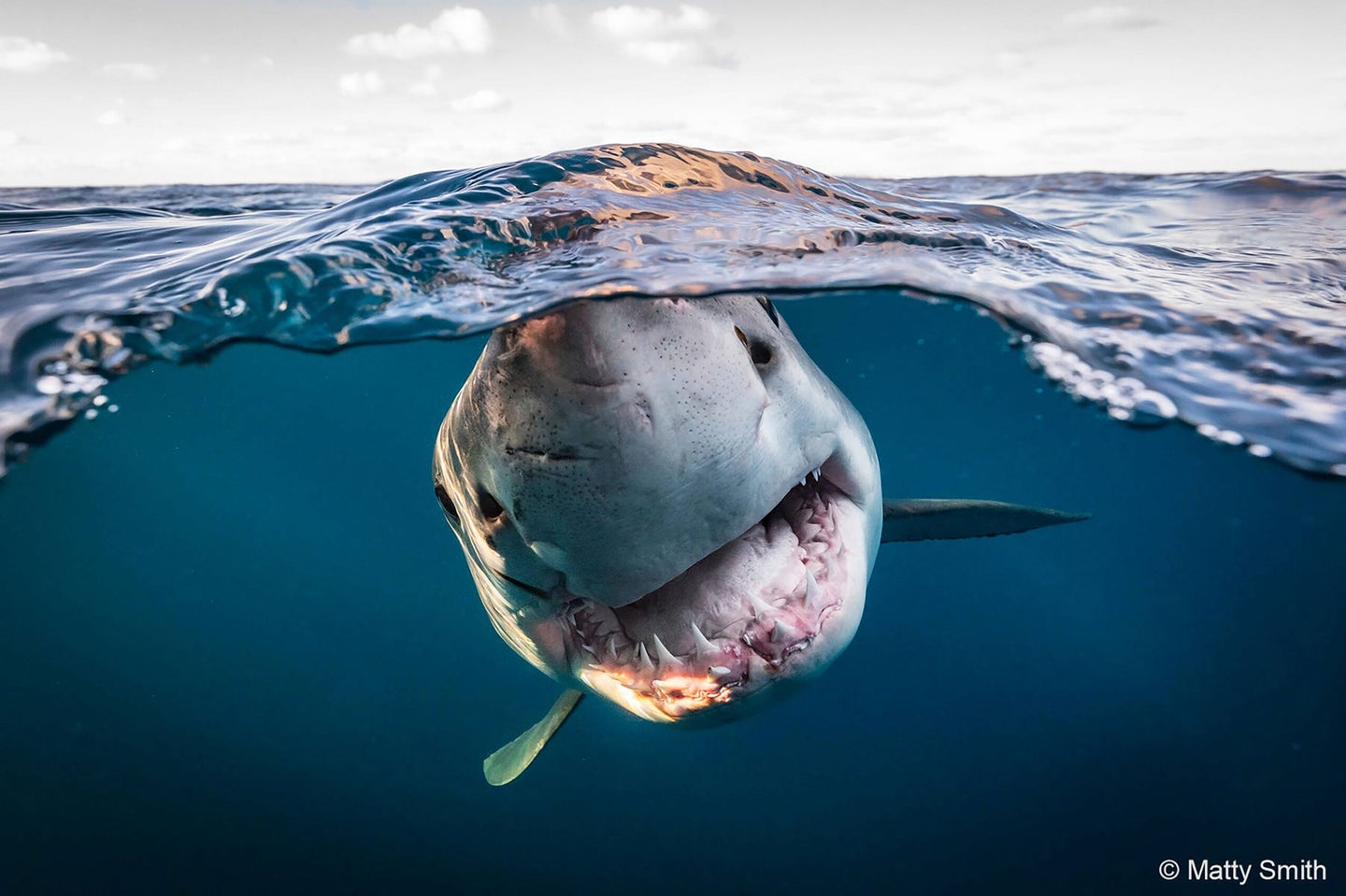
The skeleton of a tree rises towards the Milky Way. Sharks encircle the carcass of a dead whale. Tiny critters search for a snack. These scenes are among the winners and finalists of the 2022 Australian Geographic Nature Photographer of the Year awards. They invite us to appreciate the harsh beauty of nature while pondering our own impact on the environment.
Related: The year’s best urban wildlife photography
About the Australian Geographic Nature Photographer of the Year awards
The Australian Geographic Nature Photographer of the Year awards are open to all photographers. Submissions can be shot on film or digital cameras but must feature only flora, fauna, and natural land/sky formations shot in the ANZANG (Australia, New Zealand, Antarctica, and New Guinea) region.
There are nine categories to which photographers can submit up to four images each: Animals in Nature; Urban Animals; Botanical; Landscape; Threatened Species; Monochrome; Our Impact; Astrophotography; Portfolio (six images on a theme); and Junior (under 18).
Judging is based on aesthetic and artistic quality. The panel consists of Managing Photo Editor of Australian Geographic Nicky Catley; award-winning professional conservation and wildlife photographer Doug Gimesy; and Director of Flinder Marine & Coastal Research Consortium Charlie Huveneers.
The overall winner receives A$10,000 in cash and a holiday sponsored by Coral Expeditions. Various cash prizes are dispersed to category winners and runner-ups. Here are some of our favorites from the bevy of striking images.
Overall winner
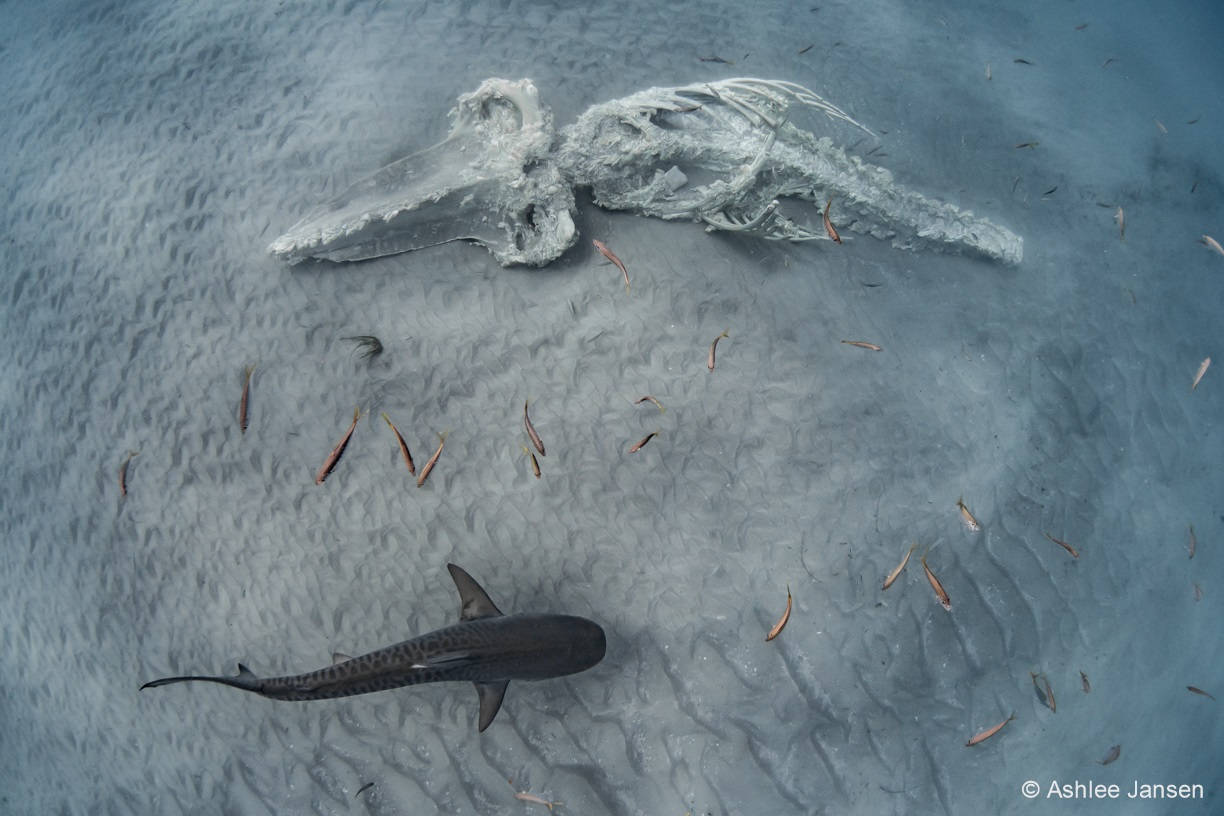
Ashlee Jansen took home the top prize with this image of a humpback whale carcass, which dwarfs the sharks now feeding on it.
“The beauty of the image lies in its artful circular composition, seen in the curves of the whale’s skeletal ribs mirroring the patterns in the sand, keeping our eye within the frame moving between the living and the dead,” the jury writes.
Animals in nature
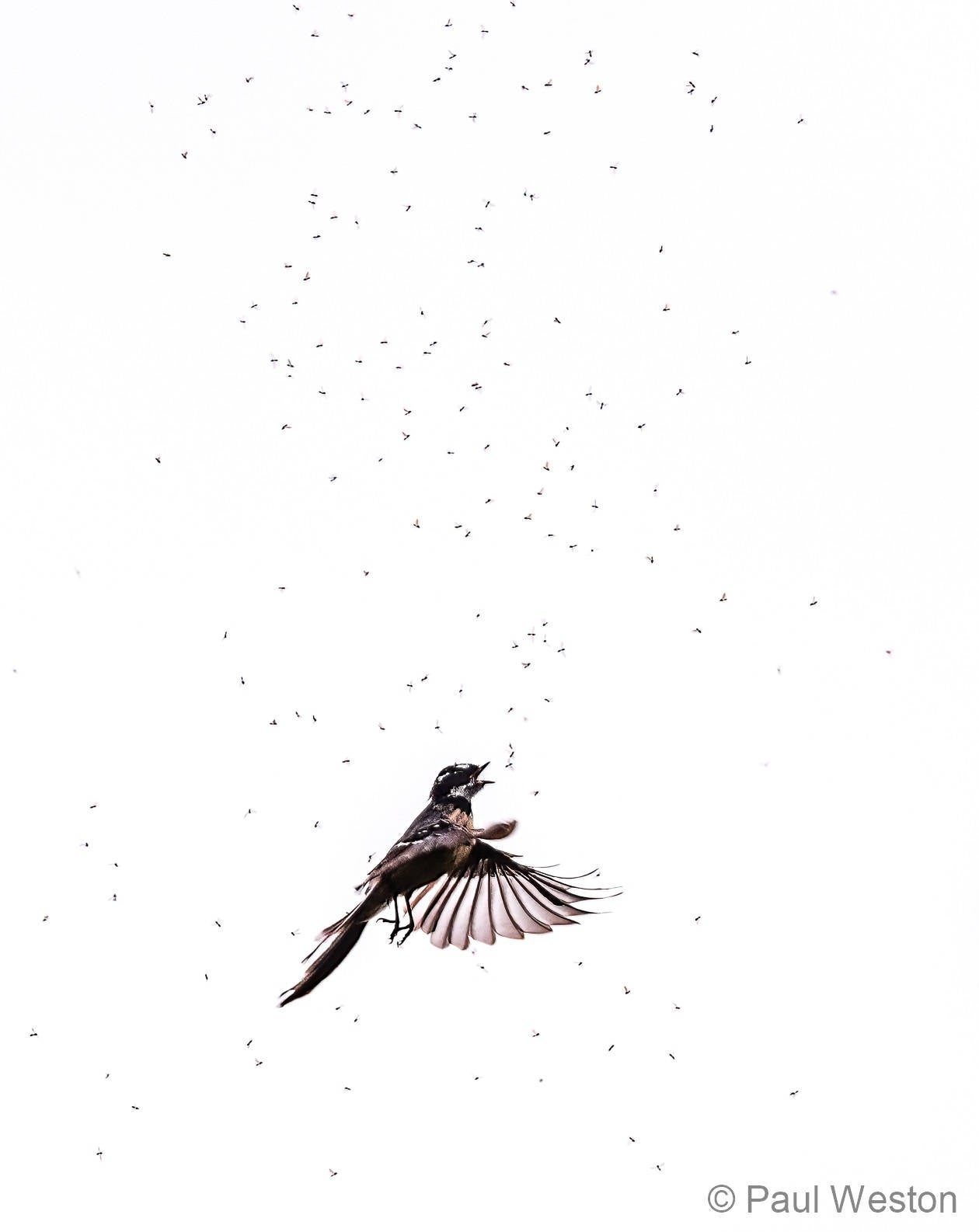
Paul Weston captures a gray fantail bird feasting on insects. He recounts the bird diving into the frenzy from its perch on a tree. Looks like there were some good eats.
Astrophotography
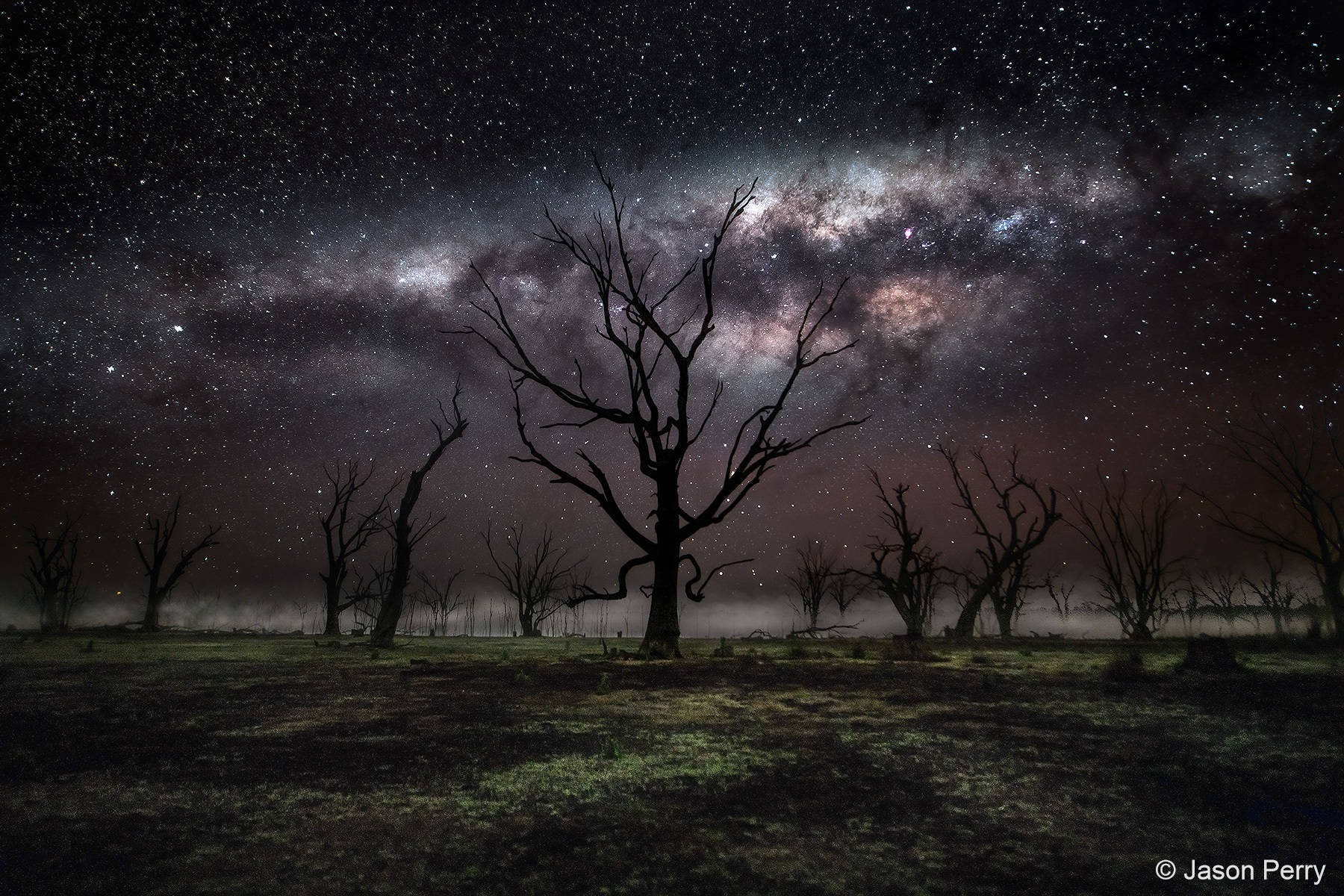
A dead tree stands, ghostly tall against a starry night sky. Jason Perry photographs melancholic poetry, a dichotomy between life, possibility, and death.
“When I saw this scene that night, it was as if the tree and the Milky Way were somehow connected despite the distance,” Perry writes.
Botanical
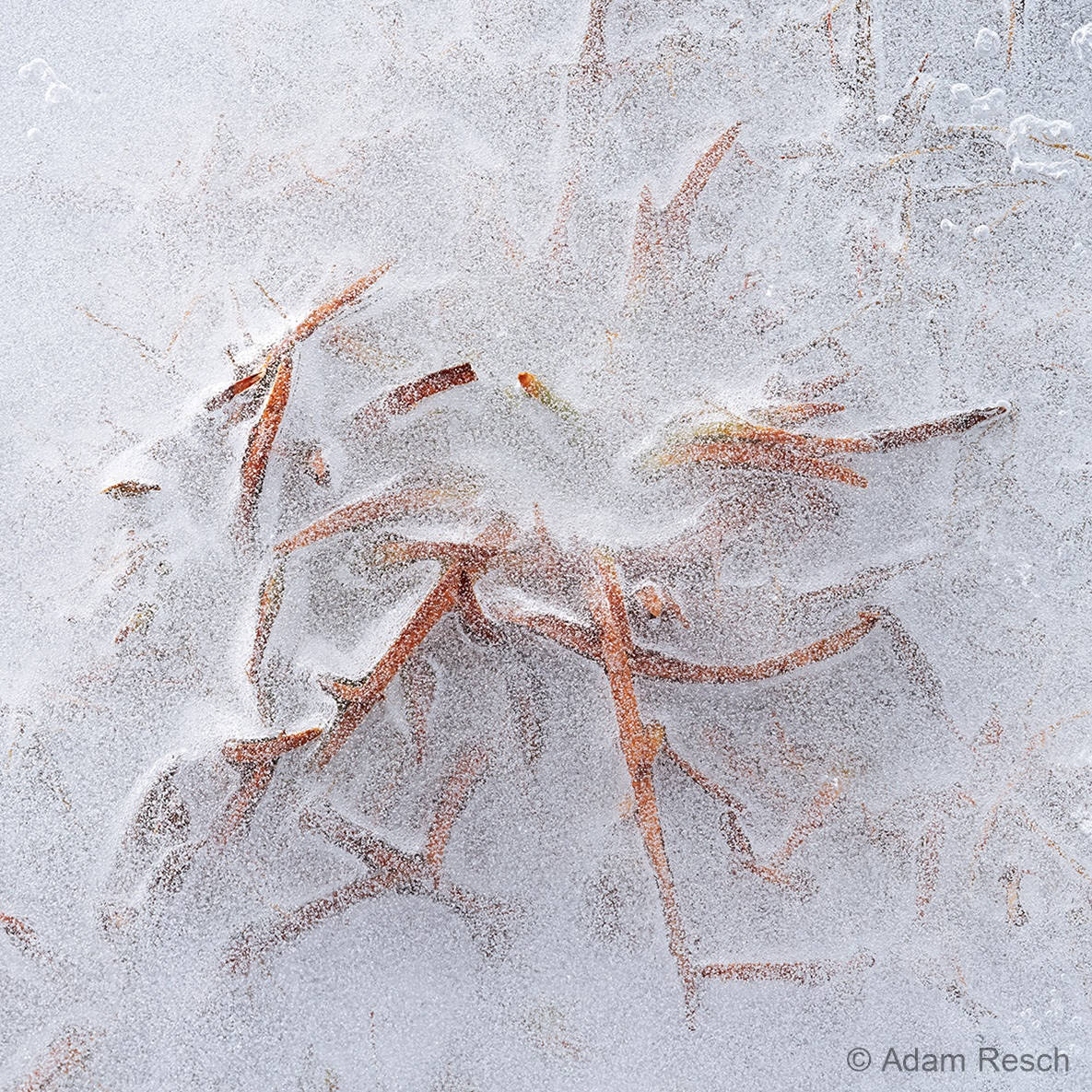
Persistence or defeat? The ambiguity piques interest. Photographer Adam Resch reveals, though, that it is defeat. “A mat water milfoil dwarf succulent creeping species succumbs to the winter freeze near an alpine lake,” he says.
Junior
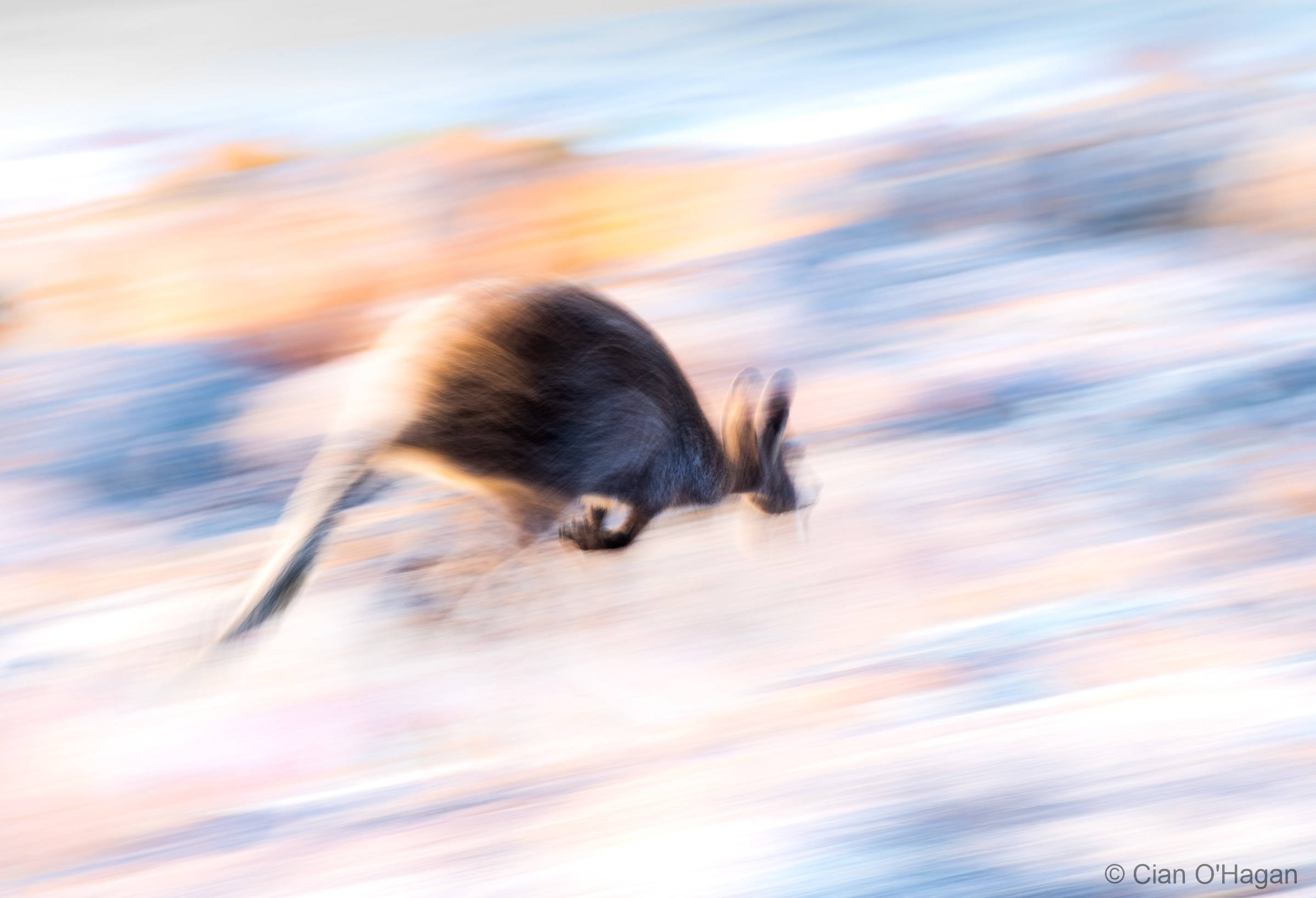
Cian O’Hagan’s image dazzled the Junior category with a blurry, action-filled photo of one of the country’s most iconic animals.
“I used a slow shutter speed to obscure the form and to capture the power, grace, and speed of this national symbol,” O’Hagan explains.
Monochrome
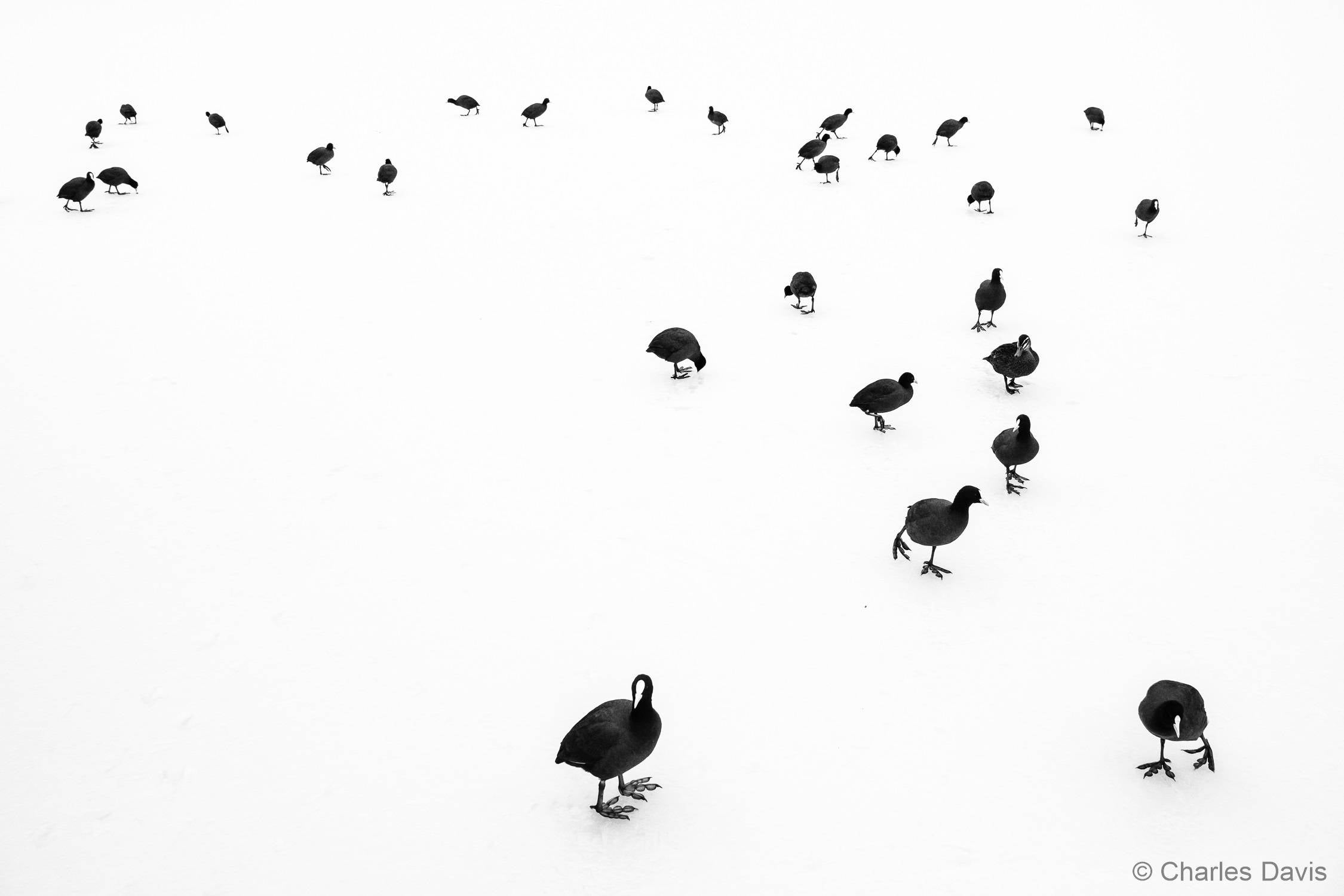
Sometimes, B&W is just what you need to enhance a scene. Charles Davis’ image of Pacific black ducks foraging for food on an icy lake uses monochrome magnificently to convey a chilly, bare, stark winter.
Our impact
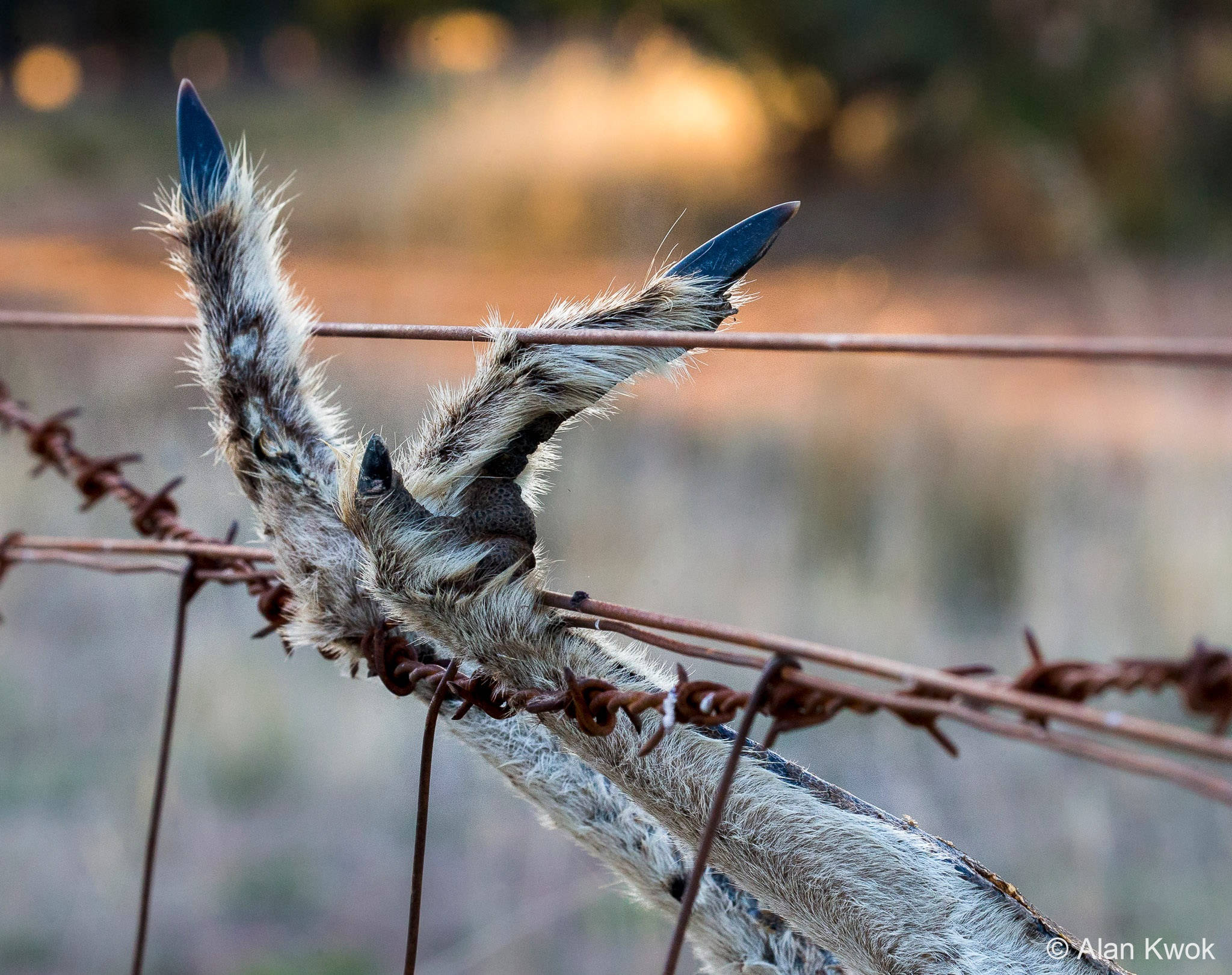
Yes, that’s a kangaroo claw. Yes, that is a barbed-wire fence. This category explores human impact on nature, good or bad. Unfortunately for this kangaroo, this circumstance was likely fatal.
“While trying to jump fences, kangaroos sometimes get their feet snagged on the wire. Their upper body flips toward the ground, tangling their legs in the wires. Known as ‘fence hanging’, the individual has no way of getting up or freeing itself and usually dies, unless a human can free it,” photographer Alan Kwok writes.
Threatened species
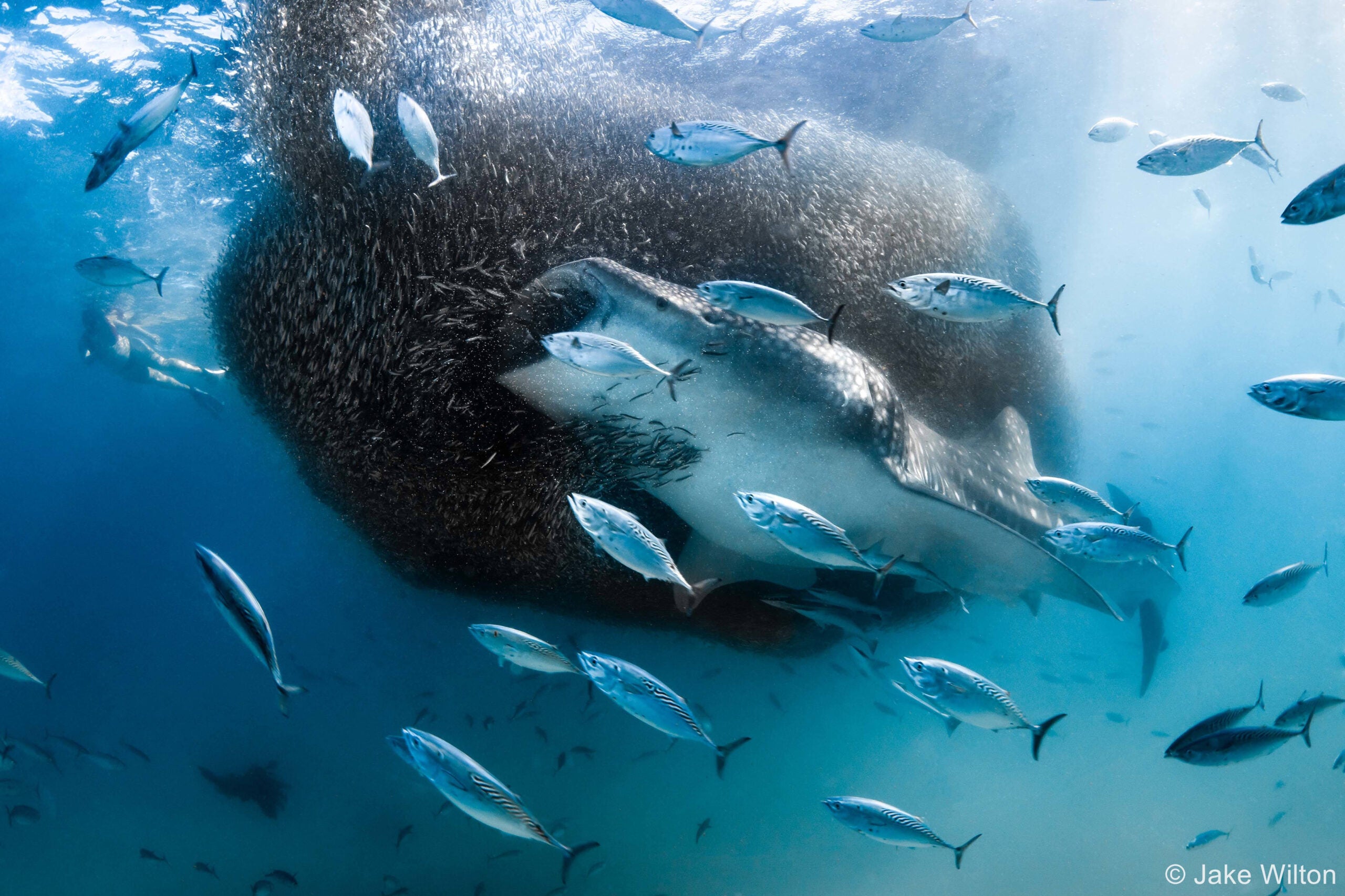
In Jake Wilton’s image, a hungry whale shark swallows a mouthful of fish. This is a rarely photographed spectacle and one that requires quite a bit of luck on the part of the predator.
“A whale shark engulfs a bait ball of fish on the Ningaloo Reef,” Wilton describes. “Little is known about this behavior, as it is so rare only a handful of records exist. The sharks are too slow, so must rely on the efforts of other predators such as tuna to catch them.”
Urban animals
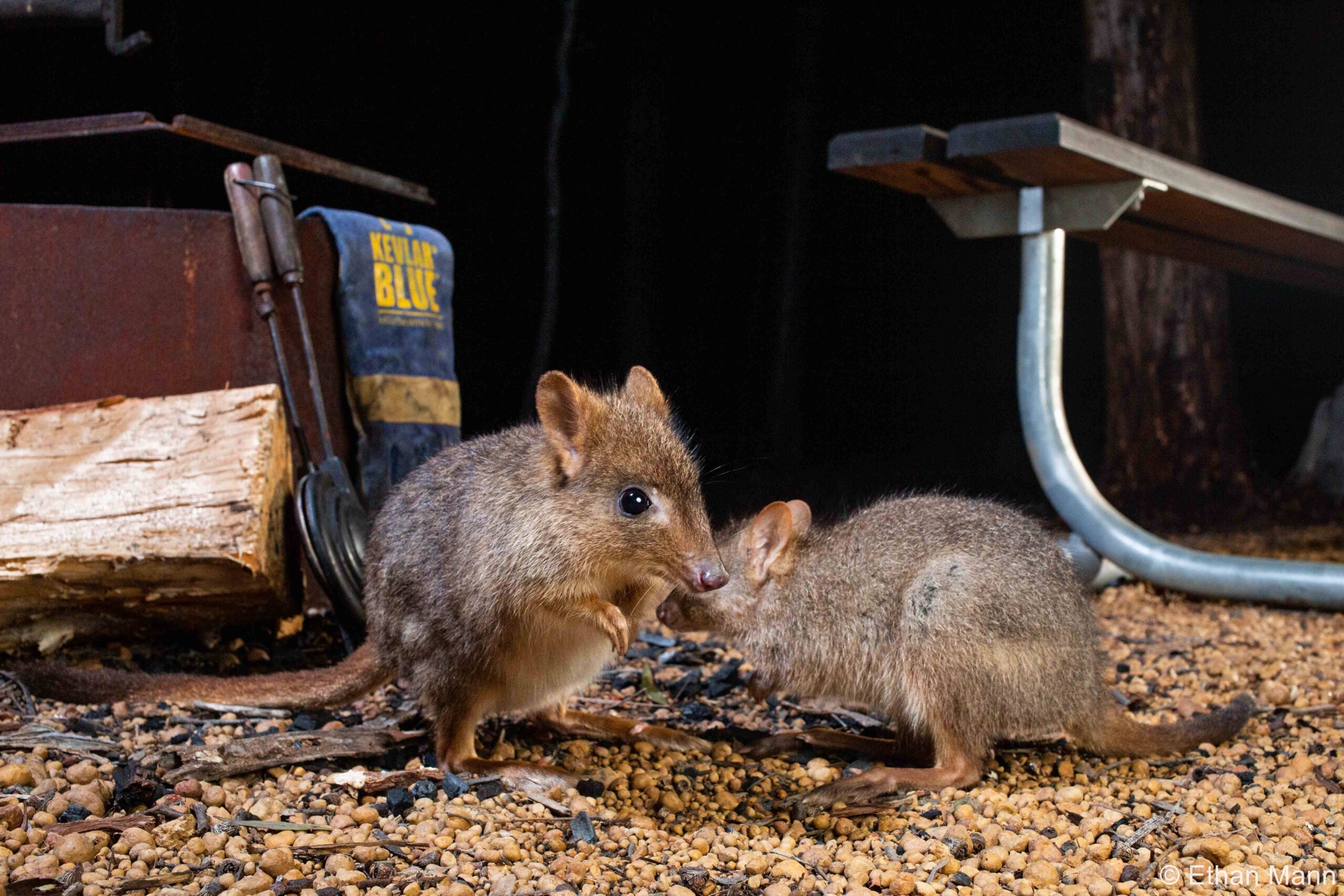
Cute critters are on the move for some tasty morsels left behind at a campsite.
“Despite the decimated population and range of the critically-endangered woylie, some have become habituated around campgrounds and scavenge for any morsels left behind by campers,” photographer Ethan Mann explains. “After observing one approach our campsite during dinner, I set up a motion-triggered camera beside the fire pit where our dinner crumbs had been thrown.”
Related: Best cameras for wildlife photography
Enter next year’s Australian Geographic Nature Photographer of the Year awards
Submissions are open between November 29 and January 28. Participants may enter up to four images per category. The first image is A$38 (USD $26) or A$10 (USD ~$7) for Juniors and subsequent entries are A$22 (USD $15) or A$5 (USD ~$3) for Juniors. Check the website for more information and updated deadlines.
The post Adventures in the outback: Winners of the 2022 Australian Geographic photo awards appeared first on Popular Photography.